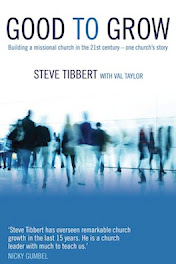At the beginning of one of our building projects at King’s (and there have been several in the life of this church since I came!) I wrote to the leaders of our church – that would include those who lead ministries or small groups - to tell them that we were in earnest discussion with banks and I said, ‘I need to know if you are really with us!’ Their response was to commit themselves to giving over £720,000 over the first three and a half years of the project. There were 150 of them, representing 88 ‘giving units’ as some of them were married. That’s 88 families committing themselves to giving.
Since I began to lead King’s I have taught the following principle: give 10%/save 10%/ live off 80%. This makes for sound budgeting and is honouring to God. The thing is – most people live of 105% of their income – that’s the culture we are in and the results of that approach have caught up with our world in a big way, in case you haven’t noticed! Spend, borrow and manage debt is the way the world does things – but living by the 80/10/10 principle will restrict some of the things you would like to do because you are making a priority call – putting God first and putting something aside for a rainy day.
There will be those who are in debt and who would like to honour God but have lived life at 105%. Being in debt is not fun – we know that. It can be crippling and can destroy lives. At King’s, in order to offer help and support in this area, like some other churches we have set up a debt advice team – people who will sit down with those in debt and help them to see the way ahead.
For others it is simply a matter of making priority calls and deciding what to do with the money we have. To give at King’s, people can put cash in the buckets as they are passed round during worship - but those who have been around the church for any length of time will know that as those buckets go along the rows, especially the front row, it begins to look as though no-one is giving anything. No-one seems to put anything in the bucket! The reason for this is simple – we actively encourage people to give by monthly standing order directly from their account into the church bank account. There is a great deal of money given in this way – the easiest way to give. So, for Deb and I, we have worked out what to give and when there is a salary increase I immediately work out the extra needed so that by the next bank transfer it has been updated. That’s how we do it!
Charismatic Gifts in Church History
3 weeks ago






